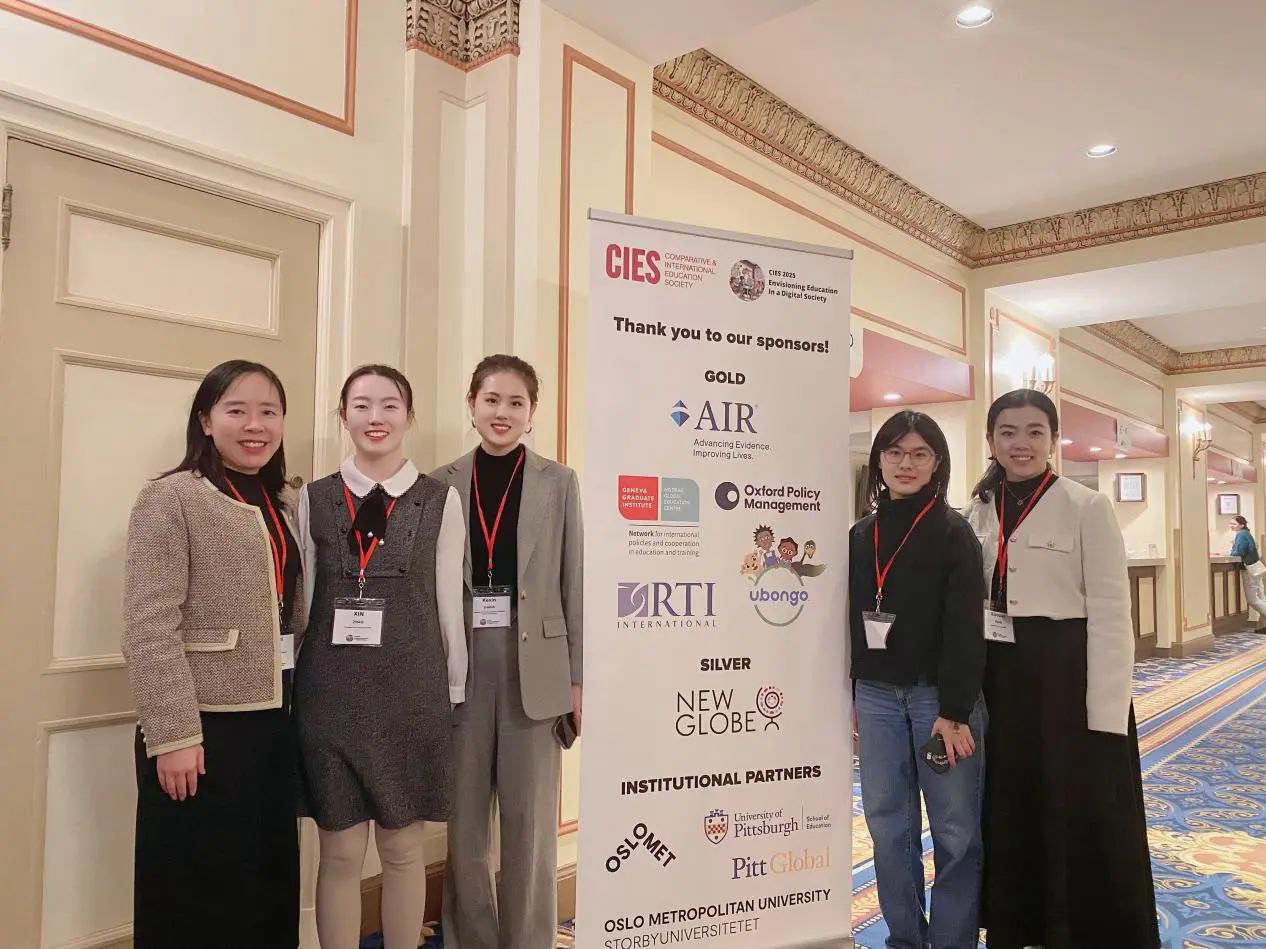
Recently, Associate Professor ZHU Jiani , Assistant Professor ZHANG Xiaoqiao, doctoral student ZHAO Xin, academic master’s student ZHANG Kexin from SOE and undergraduate minor student YU Yirong participated in the 69th Annual Meeting of the Comparative and International Education Society (CIES) held in Chicago, USA. The conference, themed “Envisioning Education in a Digital Society,” is hosted by the world’s largest and most established academic association in the field of comparative and international education. As one of the most influential international academic conferences in the field of education, the CIES Annual Meeting brings together scholars from around the globe.
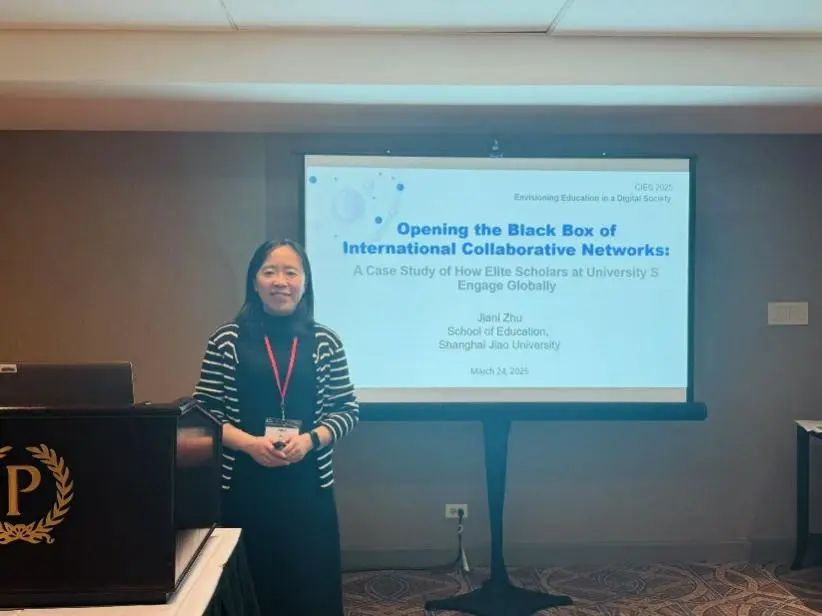
During the conference, Associate Professor ZHU Jiani presented at the session “Global Knowledge Networks: Exploring Social Capital and Knowledge Dynamics across Borders” with a report titled “Opening the Black Box of International Collaboration Networks: A Case Study of How Elite Scholars at University S Engage Globally”. This study examines the international collaboration networks of elite scholars (i.e., Highly Cited Researchers) using a mixed-methods approach that integrates quantitative analysis of CVs, bibliometrics, social network analysis, and qualitative in-depth interviews. It reveals that international scientific social capital, accumulated through overseas academic and research experience, facilitates the expansion of international research collaboration networks. Doctoral and postdoctoral experiences at universities or research institutions abroad become part of scholars’ international scientific social capital, promoting the establishment of their initial international research networks. Both strong ties and weak ties play important roles in building international collaboration networks. Geopolitical, cognitive, economic, historical, and social factors influence the formation and maintenance of elite scholars’ international research collaboration networks. This study offers a new perspective on “opening” the black box of international research collaboration by examining the dynamic evolution of individual research collaboration networks.
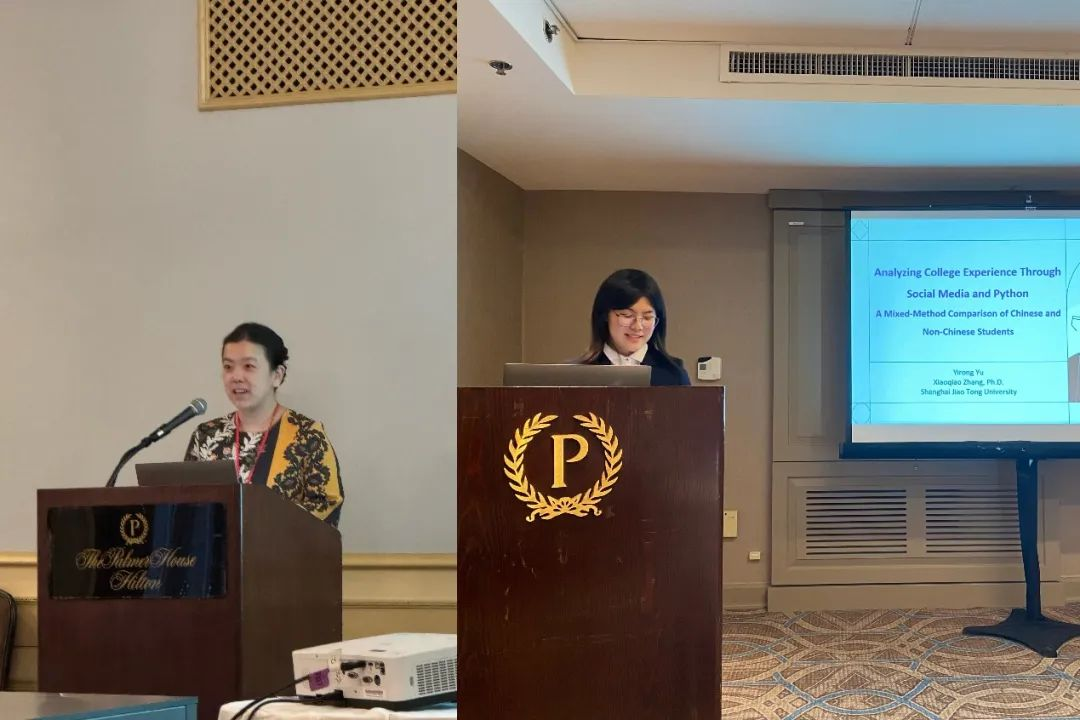
Assistant Professor ZHANG Xiaoqiao, along with her supervisee, undergraduate student YU Yirong, presented two collaborative research projects. At the highlighted session “Global Perspectives on Leadership and Career Development: Navigating Contexts, Cultures, and Collaborations”, Dr. ZHANG served as the session chair and delivered a presentation titled "The transferability of career exploration across cultures: Comparing career exploration in the U.S. to a pilot study in China". The research focused on the localization of a U.S.-based career exploration program within Chinese middle schools. Using a mixed-methods approach, the team conducted a quantitative survey to assess Chinese students' career exploration needs, followed by interviews with a subset of students to compare cross-cultural differences between Chinese and American middle and high school students. The findings show that perceptions of "high-demand" occupations options differ significantly between cultures, highlighting the influence of cultural context on career choice. Key influencing factors identified include interactive technology experiences, school support systems, and the roles of family and educators. The study underscores the importance of culturally adaptive strategies—such as curriculum adjustments, translated materials, and culture-specific case examples—in enhancing program effectiveness, offering theoretical support for cross-cultural career exploration initiatives.
The other study titled "Analyzing University Experiences through Social Media and Python: A Mixed-Methods Comparison of Chinese and International Students" was presented by YU Yirong at the Session “International Students and Social Media and Digital Learning”. Recognizing the widespread use of social media among university students, this study utilizes Python to collect and analyze comments from Chinese and English platforms such as Zhihu, Reddit, and Quora, applying language data analysis and sentiment analysis. The study finds that English social media comments about university experience tend to express more positive sentiments compared to Chinese comments. This difference is largely attributed to varying emphases and emotional tendencies towards different dimensions across cultures. Interviews with domestic and international undergraduate degree-seeking undergraduate students at the same Chinese university suggest that increasing students’ freedom of choice and addressing communication gaps can significantly improve satisfaction with the university experience. This study provides insights into how higher education institutions should consider cultural factors when communicating and collaborating with international students, helping universities better understand the strengths and limitations of different cultures and thereby learn to understand and enhance students’university experience in a more effective way.
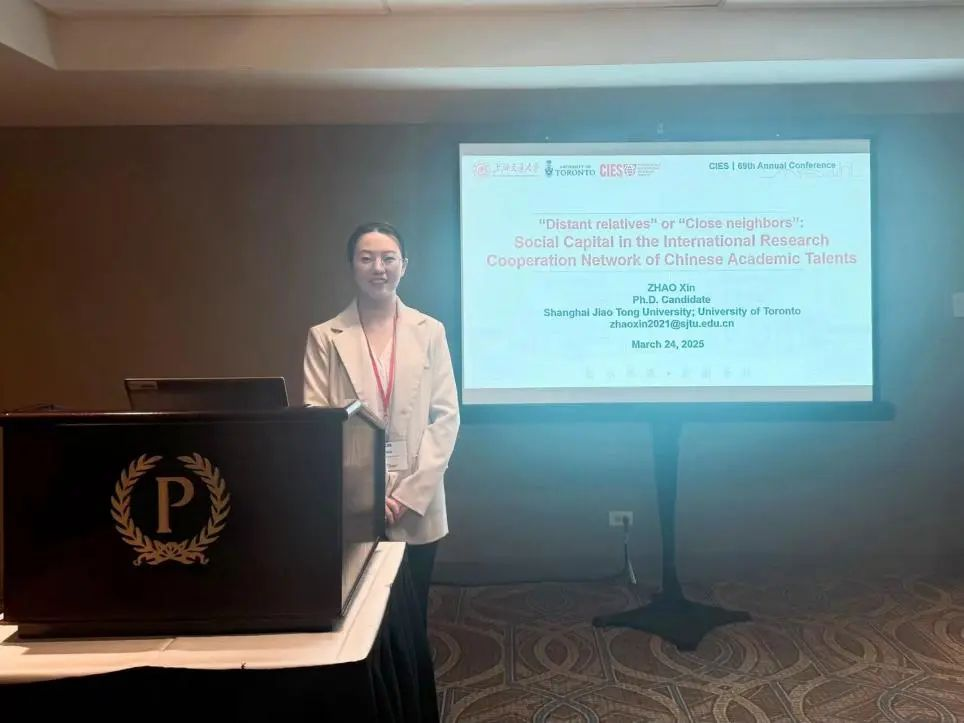
Doctoral student ZHAO Xin served as the chair of the session “Global Knowledge Networks: Exploring Social Capital and Knowledge Dynamics across Borders”, in which she also presented a paper titled “‘Distant Relatives’ or ‘Close Neighbors’: Social Capital in the International Research Cooperation Networks of Chinese Academic Talents”. Focusing on members of the Chinese Academy of Sciences, the study examines the evolution of international research collaboration networks and the dynamic development of social capital throughout academic careers. Using a sequential explanatory mixed-methods approach, the research identifies significant structural differences in these networks, shaped by personal characteristics, disciplinary factors, and cross-national and institutional mobility. Academicians were categorized into four types based on international collaboration preferences: international, domestic, quasi-international, and quasi-domestic. The study reveals differences in the structural, relational, and cognitive dimensions of social capital across these categories. It offers both theoretical and practical insights for understanding elite scholars’ career development, institutional strategies, and national science policies.
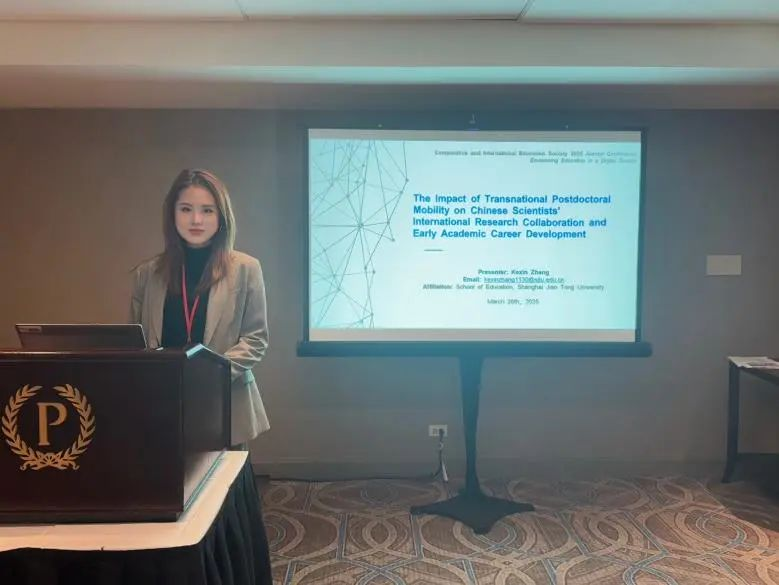
Academic masters’ student ZHANG Kexin presented at the session “Global and Comparative Perspectives on STEM Education and Research” with a report titled “The Impact of Transnational Postdoctoral Mobility on Chinese Scientists’ International Research Collaboration and Early Academic Career Development.” In response to growing uncertainties in the global academic profession, this study explores the trends and characteristics of transnational academic mobility among postdoctoral fellows—metaphorically as the “sandwich layer” of academia. Combining CV analysis, bibliometrics, social network analysis, and interviews with early-career scientists as the study method, the study finds that different postdoctoral mobility patterns lead to structural heterogeneity in scientists’ international collaboration networks. Some collaborative ties persist into the early stages of academic careers, opening new paths for professional development. Postdoctoral supervisors often serve as key structural holes in their networks, enabling junior researchers to access academic resources and build broader academic weakties. This research contributes to our understanding of early-career scientists’ career trajectories and development environments.
Editor on Duty: Tao Qingxiao

